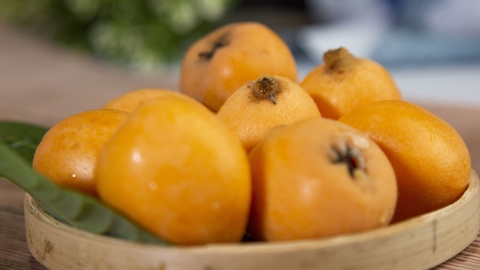Can I eat loquat during pregnancy?
Generally speaking, loquat can be consumed in moderation during pregnancy, but attention should be paid to the quantity and individual physical condition. Detailed explanations are as follows:

Loquat is rich in vitamin C, carotene, dietary fiber, potassium, magnesium, and other minerals, which help enhance immunity, promote iron absorption, prevent anemia during pregnancy, and benefit fetal vision development. Organic acids in loquat can stimulate the secretion of digestive juices, alleviating poor appetite during early pregnancy. Its dietary fiber promotes gastrointestinal motility and helps prevent or improve pregnancy-related constipation.
However, consumption should be moderate. Loquat has a cooling nature, and excessive intake may irritate the gastric mucosa, causing discomfort such as stomach pain, acid reflux, or diarrhea, especially for pregnant women with weaker gastrointestinal function. Some pregnant women with specific constitutions might experience allergic reactions to loquat. It is recommended to try a small amount initially and observe any bodily reactions. If discomfort occurs, stop consumption immediately and consult a doctor.
To ensure safety during pregnancy, it is recommended that pregnant women consult an obstetrician or nutritionist before consuming any food—especially those whose suitability for pregnancy is uncertain. Before consumption, ensure the loquat is thoroughly washed to prevent pesticide residue or bacterial infection.










